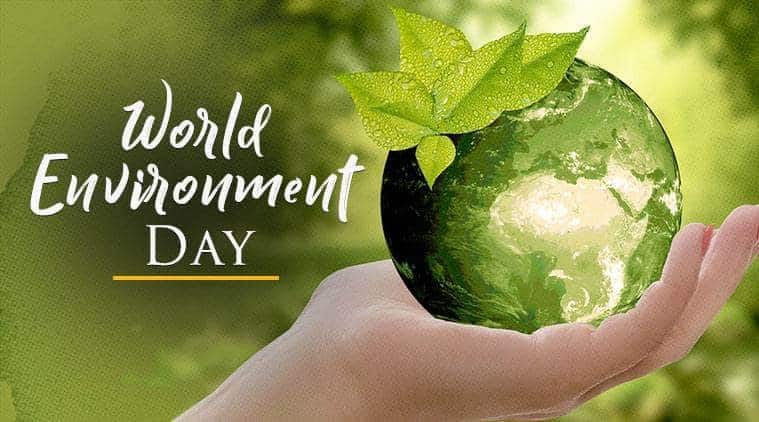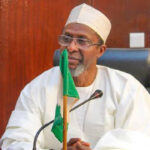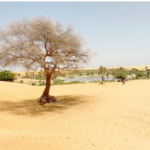By Muhammad Salihu Ahmad
“We don’t inherit the earth from our ancestors, we borrow it from our children” – David Bower
Farmers around the world are grappling with hotter climate and lesser farm outputs as the world unites to celebrate World Environment Day on June 5, 2024, with numerous brands, organisations and nations stepping up with significant initiatives aimed at land restoration, combating desertification, and enhancing drought resilience.
World Environment Day is an essential initiative to protect our environment and achieve sustainable development goals. It is the biggest international day for the environment. Led by the United Nations Environment Programme (UNEP), and held annually since 1973, it has grown to be the largest global platform for environmental outreach. It is celebrated by millions of people across the world.
The Kingdom of Saudi Arabia hosted this year’s day with a focus on land restoration, desertification and drought resilience. Land restoration is a key pillar of the UN Decade on Ecosystem Restoration (2021-2030), a rallying call for the protection and revival of ecosystems all around the world, which is critical to achieving the Sustainable Development Goals. The healthier our ecosystems are, the healthier the planet – and its people
In Nigeria, we are similarly facing several significant environmental challenges that impact on our ecosystems, communities and overall sustainability. Aware of these challenges, especially those enumerated below, what key steps have either the government or the citizens taken that aim to protect the environment, reduce poverty, promote inclusive development, and contribute to global sustainability?
- Family of late OPC founder, Fasehun, protests Tinubu’s Democracy Day speech
- NIGERIA DAILY: Minimum Wage: “Why LGAs Will Soon Be Beggars”
Climate Change and Variability: Increasing climate variability in Nigeria has led to more intense and untimely rainfall patterns with extreme weather events, such as flash floods, landslides and gully erosion, that have worsened across the country and altered our farm outputs.
The World Bank has noted Nigeria as one of the ten most vulnerable countries to climate change impacts, with much Soil Erosion and Land Degradation where unpredictable and uncontrollable floods have eroded soil causing loss of crops, farmland, and property with desertification and overgrazing rendering large areas of land in the northern parts Nigeria unproductive. The World Bank has reported that by 2009, approximately 6,000 gullies were destroying roads, highways, pipelines and houses across rural and urban Nigeria.
Deforestation and Biodiversity Loss through extensive cultivation, logging, and urbanization have contributed to deforestation. This loss of forest cover has affected our biodiversity, wildlife habitats, and ecosystem services.
We are facing water scarcity and pollution due to population growth, inefficient water management, and pollution. While oil spills, industrial waste, and inadequate sanitation systems have continued to contaminate water sources. This is compounded by improper waste disposal practices that lead to pollution of land, water bodies and air, and exacerbate environmental degradation.
We have tended to ignore air and water quality that is being affected by emissions from industries, vehicles and household activities. Likewise, our rapid urbanisation is straining natural resources and ecosystems through infrastructural development that often disregards environmental considerations.
In the area of food security, depleting environmental resources poses a serious food security challenge. Climate-induced changes have exacerbated tensions between communities. Worse is the Resource Conflicts that are being faced, where Farmer-herder conflicts are escalating due to competition for land and water resources.
Unfortunately, despite growing awareness of climate change impacts, poor governance has hampered effective collective action. Stakeholder engagement has remained a challenge in implementing effective climate resilience strategies and efforts.
It is time for various levels of government and individuals in Nigeria to take action to contribute to climate change mitigation and environmental restoration. As citizens, we can start some actions like:
Energy Transition that will promote the use of Renewable Energy and encourage the adoption of solar, wind, and hydropower as cleaner alternatives to fossil fuels.
Implementing effective Flood Risk Management and flood risk reduction measures to prevent infrastructure damage and protect communities. We can also prioritise flood-resistant infrastructure projects that attract private investment in clean energy.
Citizens should advocate for tax incentives for components used in solar energy systems. Tax and duty exemptions for the solar solutions approach have been successful in countries like Morocco and Rwanda.
Adapt existing initiatives and modify existing programmes in the power, agriculture, and transport sectors to promote clean energy practices. This will be through the encouragement of sustainable practices that reduce emissions and enhance resource efficiency.
Ahmad resides at FMA2, off Yaya (Petel) Abubakar Road, Fadamar Mada, Bauchi
Raising public awareness by educating citizens about climate change impacts, the benefit of conserving the environment and the importance of individual actions by involving communities, local schools, youth groups, women’s organisations, and farmers in waste management, pollution reduction efforts, the planning and execution of tree-planting activities and how that will contribute to environmental sustainability. Embrace Land restoration and afforestation by planting trees to restore degraded lands to combat erosion and enhance soil health, and to embrace Land Restoration and Afforestation to restore degraded lands to combat erosion and enhance soil health.
Support climate-smart projects through investments in climate-smart initiatives such as fuel-efficient cookstoves and solar-based electricity generators and automobiles.
Advocate for policy changes by encouraging policies that promote low-carbon development and strengthen climate action frameworks. Citizens have a role to play in engaging with policymakers to prioritise climate resilience and sustainability.
The world is learning how to survive in a drier, hotter climate. The world is adapting to new water-storage techniques as the traditional ponds are drying up, and the world is also changing how they feed their cattle and sheep and cultivate crops.
By collectively taking these steps, individuals can contribute to Nigeria’s efforts in mitigating climate change, protecting natural resources, and leaving a more sustainable future for our children and grandchildren.

 Join Daily Trust WhatsApp Community For Quick Access To News and Happenings Around You.
Join Daily Trust WhatsApp Community For Quick Access To News and Happenings Around You.


